Fidra Exhibition Stand
Date: Tuesday 9th November
Time: 9am-6pm
Description:
An interactive information stall showcasing our project work, with a focus on nature-based solutions and circular economy showing prevention of plastic and chemical pollution into our natural environment.
Location:
The Green zone, Glasgow Science Centre, 50 Pacific Quay, Glasgow, G51 1EA
Booking:
Book tickets for the Green Zone
Packaging
Overcoming The Challenges, A Better Future For Us All
Date: Wednesday 3rd November
Time: 11am-1pm
Description:
We will be involved in a panel discussion hosted by the Scottish Salmon Producers’ Organisation
Location:
The Studio, 67 Hope Street, Glasgow, G26AE
Booking:
Invite only
Round Table
Discussing the links between plastic pollution and the climate crisis, and what COP26 can do to tackle both in parallel.
Date: Thursday 4th November
Time: 10-11:30am
Description:
A plastics panel roundtable discussion, hosted by Holyrood Magazine’s COP26 Fringe and Portsmouth University’s Revolution Plastics
Location:
Platform, Glasgow
Booking:
Invite only. More details here
Plastic: Friend or Foe?
Examining how we can tackle plastic pollution, from the bigger picture to Fidra’s targeted projects.
Date: Wednesday 10th November
Time: 10.00-11:30 GMT
Description:
We are working with Glasgow Science Centre to host a workshop on plastic pollution and solutions, for community members in Glasgow.
Location:
GSC Community space
Booking and further details:
Invite only
Beyond the Bottle
How outdoor sports can help the environment
Date: Thursday 11th November
Time: 1930-2100 GMT
Description:
Outdoor sports enthusiasts are among the environment’s biggest fans, here we explore the environmental footprint of outdoor sports and what we can do about it as an individual, local sports club or national organisation.
In association with Glasgow Science Centre and Scottish Canoe Association
Location:
Online
Booking and further details:
Beyond the Bottle Registration, Thu 11 Nov 2021 at 19:30 | Eventbrite
Our Online Displays
Explore our projects online Part 1.
Our Online Displays
Explore our projects online Part 2.
